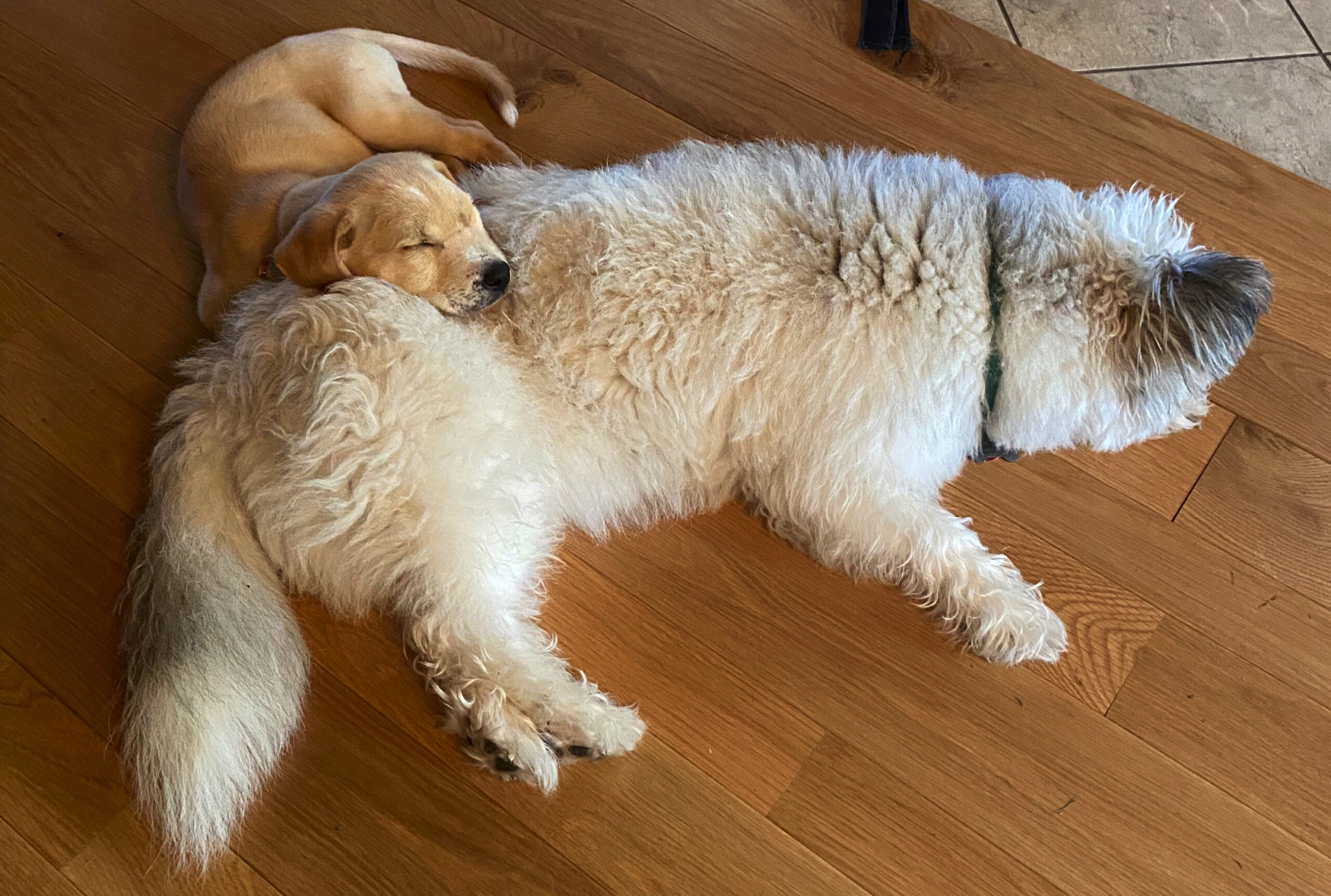It’s important for me to have a plan to maintain stable mental health. I’d like to say I have a well-thought-out, elaborate plan. I don’t. Until 12 years ago, I spent most of my life trying to avoid mental hospitals. In my mind, I combined all the ones I’d seen in the movies or read about. Avoiding mental hospitals is my life’s work.
You know the hospital I’m talking about. It has mint green cinder block walls, thick heavy bars on the doors and windows, and a thin mattress on the floor. It’s dirty and disgusting. Patients live in squalor. There’s always an evil, sadistic nurse lording over them. The ward attendants rape the women and beat the men. If you break the rules or don’t listen, they dope you up so much you can barely walk, or they spray you down with a fire hose.
If you remember, in Charlotte Bronte’s book Jane Eyre, Mr. Rochester’s wife, Bertha, is described as mad. She is locked in the attic following their marriage and watched by Grace, who drinks. In the end, she sets the house on fire and jumps off the roof, committing suicide. The many times I read that book, I never thought, “Oh, that poor woman.” I always thought, “Oh good, she’s dead now. Mr. Rochester and Jane can get married and live happily ever after.”
That’s what I’ve been avoiding my whole life, being locked in the attic or hosed down for bad behavior in a prison-like cell. I wouldn’t leave my dog in a place like that for the weekend. My doctor says they don’t look like that anymore. I never bothered to ask why you would be confined to a place like that. I just assumed that if people knew what was in my mind, that’s where I’d go.
Mental illness is the same as other illnesses. It’s the chemistry in the brain gone haywire. We are called mentally ill, not mentally ill by choice. It’s genetic. It’s not my fault. If you have it, it’s not your fault either.
I have the hardest time staying sane during stressful times, medication changes, or not taking my medicine, usually by accident. Stress and medication changes are unavoidable. During a medicine change a few years ago, I lost my mind. It was so bad that even I knew I should be in a hospital, but when I realized that, it was too late. I was too depressed to ask for help. Early in our relationship, I threatened not to speak to my husband if he let me get stuck in a mental hospital. Our local hospital calls that section–The Behavioral Unit. I’m not sure I like that any better.
After that incident, my doctor said, “You need a plan.” I wrote a letter that gave my husband and doctor permission to decide together whether I needed to be hospitalized and medicated against my will. I trust them both. I know it would be the absolute last resort. They have both seen me try to keep it together during these times and know what it costs everyone.
Kay Redfield Jamison discusses having a plan in her book, An Unquiet Mind: A Memoir of Moods and Madness. When I read her book, it was the first time I’d heard of or considered having a plan, but it wasn’t until seven years later that I decided I needed one. Prior to that, I didn’t want to give up control.
I need to trust people so I can check in and get feedback if I’m going south. I need to surround myself with people I trust that I can count on. I usually build a case against the world and the people in it, and then spend my life proving I’m right. This practice is completely to my detriment. I need people. It seems corny, but it’s true.
I need to talk about it when I’m starting to show signs that something is wrong because once I go, I’m not telling anyone. If I have a voice, there’s less chance that my symptoms will go unchecked and become severe. And if they do, I feel protected instead of persecuted because people support me. Then, when I’m paranoid and think there’s an elaborate plan to desert me and ruin my life, a little voice in the back of my mind says, “It’s going to be okay. Remember.” Keep in mind that when I go off-kilter, I’m taking medicine. Imagine the poor folks who can’t afford medicine or stop taking it because the side effects are terrible, and they can’t stand them anymore because the side effects can be intolerable.
A fellow sufferer is a good friend to have. It’s hard to pick someone off the street to befriend. I attended a NAMI meeting once, the National Alliance On Mental Health Illness, which is a good place to start. My bipolar friend walked into my life at the perfect time. I named him Barnacle. Yes, he’s real, not a stuffed animal or imaginary friend. He saved me. He saved me with his advice about stopping Lithium. He shared his experience with trying to do that himself. He said it was horrible. Actually, he said, “It was the worst manic episode of my life.”
The next time I saw him, I said, “You saved me.” He said, “Well, you’re saving me now.” That’s how our friendship started. I told him, “Oh good, I’m going to text you non-stop. I’m going to stick to you like a barnacle.” We started signing our texts, Barnacle. I was more persistent, so it became my nickname for him. Each time I’ve stopped a medication, I was following the doctor’s orders, not going off on my own.
When times are tough, I only want to talk to someone who really understands. He did. Whenever I wasn’t right, I’d text. “I’m not okay.” He would call me. He knew the list of symptoms like the back of his hand and would ask, “Are you sleeping? Do your thoughts crash so quickly you can’t process them?” He asked me each one and analyzed my answers. Then he’d say, “Call your doctor,” or some other calming advice.
He was only in my life a few years when he died from a massive heart attack. I still miss him. I still need his counsel. He’s irreplaceable. I haven’t found a new friend even though I need one. Honestly, I probably haven’t found one because I’m not looking.
Another tool I can use is journaling. I figure things out more quickly when I write. For some reason, I don’t like this idea much, but it really works. I’m more honest with myself, almost by accident, when I write things down. When I get paranoid, though, I won’t write because I’m worried it will be used to build a case against me.
In my experience, when things get bad, it’s good to take time off. I hate this idea. I don’t want to “waste” my vacation time. I cause less damage to myself, my career, and my loved ones if I wait it out at home. As I said, stress makes everything worse, and it takes longer to recover.
My husband fills my medicine dispensers every week to minimize mistakes. When he took over the responsibility, I felt like a loser. “I can’t even dispense my medication correctly.” But he showed me that it’s just confusing. I’m not an idiot.
I see my psychiatrist every 4 – 6 weeks to maintain transparency. From her, I learned to pay attention to my health. She analyzes whether I’m physically, emotionally, mentally, and spiritually fit and if my life is balanced.
For example, I recently stopped taking Seroquel because of the side effects. This resulted in eighteen months of hell–not sleeping, wild mood swings, mania, and so on. At the same time, I was having terrible stomach problems and had been for months. After a colonoscopy, it was discovered that I have lymphocytic colitis. By looking at my lab work, she saw that my TSH and Lithium levels were both low and came to the conclusion that my medicine was not being absorbed into my body, which exacerbated my symptoms and caused a veritable shit-storm in my life. My whole health picture is vital.
I guess I do have a somewhat detailed, elaborate plan. It’s mostly preparation, though. The fact is that I can’t hide anymore if I want to minimize the times when I’m sick. My worst fear is no longer the mental hospital. It’s going insane and losing the life I have. Whenever I think about that, I’m more inclined to be open, honest, and transparent. When I’m properly treated for my bipolar symptoms, I’m happy, happy like it’s my tenth birthday, and I got a pony. I want to keep that now. I know the quickest way to lose it is to start hiding again.
For years and years, I had no one I could entrust with my freedom. Now, it’s a requirement for my good health to trust people. If I don’t, I need new people.
For more information, see Creating a Mental Health Crisis Plan or Being Prepared for a Crisis.




